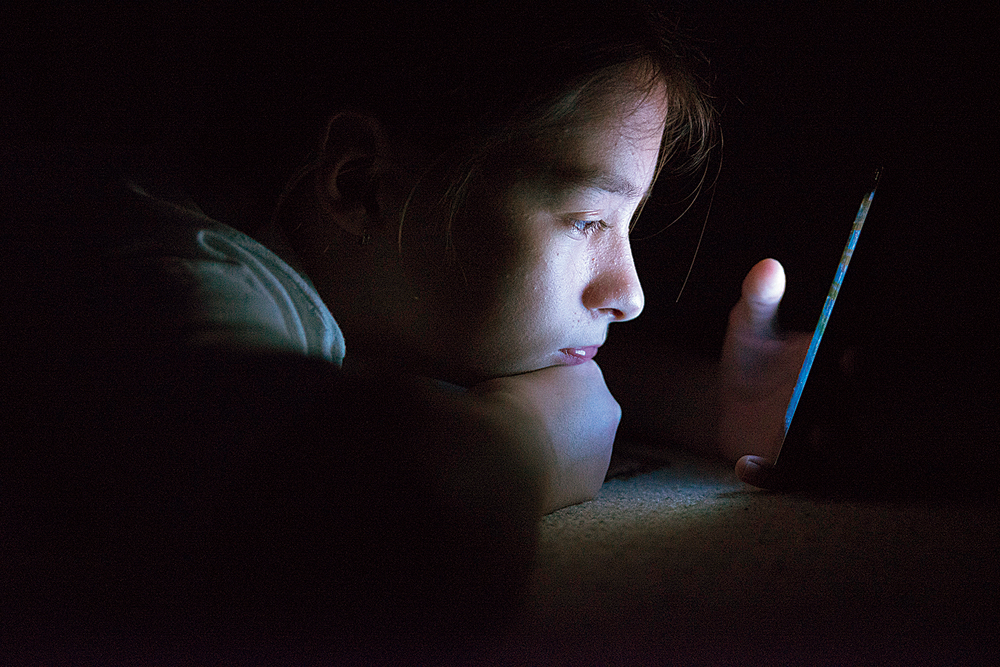Facebook. WhatsApp. Google. Internet surfing. It’s now difficult to imagine life without them. There is a pressing need to check messages, comments, number of likes and notifications. We feel weird if we don’t have our mobile phone on us. We also find it strange if somebody says they are not on Facebook.
We can’t help but constantly check WhatsApp even in the company of other people. We are always taking pictures to Tweet or Instagram. Technology and social media have thus become as important as oxygen to India’s Gen-Y.
However, in this technology-driven environment, it becomes imperative to understand the difference between being technology-savvy and technology-addicted.
What is tech addiction?
Technology addiction can be simply defined as excessive use of technology to gain pleasure and escape from reality. It is the compulsion to use technology in order to avoid addressing real-life problems.
Why do we get addicted to tech?
Technological overload helps us to dissociate ourselves from the real world and find solace in the virtual world that we create. The personality that we create on the Internet becomes more valuable to us than who we are in real life.
Teenagers often have poor coping mechanism. In stressful situations they look for something to hold on to. Things like social networking and watching videos online become easy tools of distraction.
For instance, it has been reported that people who are shy, lonely, depressed or socially insecure, tend to use Facebook more than individuals who are not. Facebook and Twitter become the perfect platform to voice opinions and ideas for people who have low self-esteem and are scared of being judged and misunderstood.
Communication through social media reduces the constraints of face-to-face communication.
Is your use of tech problematic?
If a person answers ‘Yes’ to three or more of these statements, it may be indicative of a problematic and/or addictive use of a mobile phone according to a study by Mark D. Griffiths, a professor at Nottingham Trent University.
- My mobile phone is the most important thing in my life.
- Conflicts have arisen between me and my family and/or my partner about the amount of time I spend on my mobile phone.
- My mobile phone use often gets in the way of other important things I should be doing, such as working or studying.
- I use my mobile phone as a way of changing my mood.
- I have lied to other people about how much I use my mobile phone.
Cecilie Schou Andreassen, professor at the Department of Clinical Psychology, University of Bergen, and her colleagues have come up with six criteria to determine the Bergen Facebook Addiction Scale (BFAS). Those taking this test have to give one of the following five responses to each statement — Very rarely, Rarely, Sometimes, Often and Very often.
- You spend a lot of time thinking about Facebook or planning how to use it.
- You feel an urge to use Facebook more and more.
- You use Facebook in order to forget about personal problems.
- You have tried to cut down on the use of Facebook without success.
- You become restless or troubled if you are prohibited from using Facebook.
- You use Facebook so much that it has had a negative impact on your job/studies.
Andreassen and colleagues suggest that scoring ‘Often’ or ‘Very often’ on at least four of the six items may suggest the respondent is addicted to Facebook.
Chatting or dating on social media
Social media has become another version of alternate reality. We would often ‘meet’ the other person online. When we get attracted to the other person the pitfalls are serious and must be kept in mind.
- The person you might be dating might have given out wrong information about himself/herself.
- You might get attached to a person who does not exist in reality.
- The conversations you share might be used to your disadvantage.
- Another increasing trend is indulging in online sex for the sake of instant gratification. But this can be dangerous.
- Your pictures and conversations may be recorded and put up on indecent websites.
- You might be blackmailed by your partner since he contains the key to your reputation and that of your family.
- A video of yours might be shared as an MMS.
How to reduce tech dependence
Understand that being on your phone or on the Internet all the time does not make you cool. Firstly, you must accept and admit to yourself that your use of technology is excessive. Here are the other things you can do:
- Turn off automatic notifications for email accounts, Facebook and so on. Avoid using your ringtone for all notifications that do not require your immediate attention.
- Learn to neglect your urge to check your phone or social networking sites. Set mental goals regarding technology use to maximise work. For instance, a student can decide to log onto Facebook once he or she has finished studying a certain number of chapters.
- Make it a rule to put your phone aside and resist the temptation to use it when you’re in the physical company of other people. It’s insulting to another person.
- Try to engage in outdoor activities instead of spending time on the Internet. Take up a sport, spend time enjoying an art or a craft, read a book, or pursue any hobby that you might have.
- Set a timer whenever you’re surfing the Internet or playing games. You’ll realise how much time gets wasted. Try to gradually reduce the time you typically spend on machines.
- Finally, don’t hesitate to seek professional help if required.
Social media should be used to your advantage. You should be careful and responsible while using it. Make sure you do not divulge too much information about yourself on the Internet. Enjoy it intelligently!
The author is a psychotherapist, counsellor, founder of Caring Minds, ICanFlyy, Cafe ICanFlyy, and a TEDx speaker. Write to askminubudhia@caring minds.co.in











